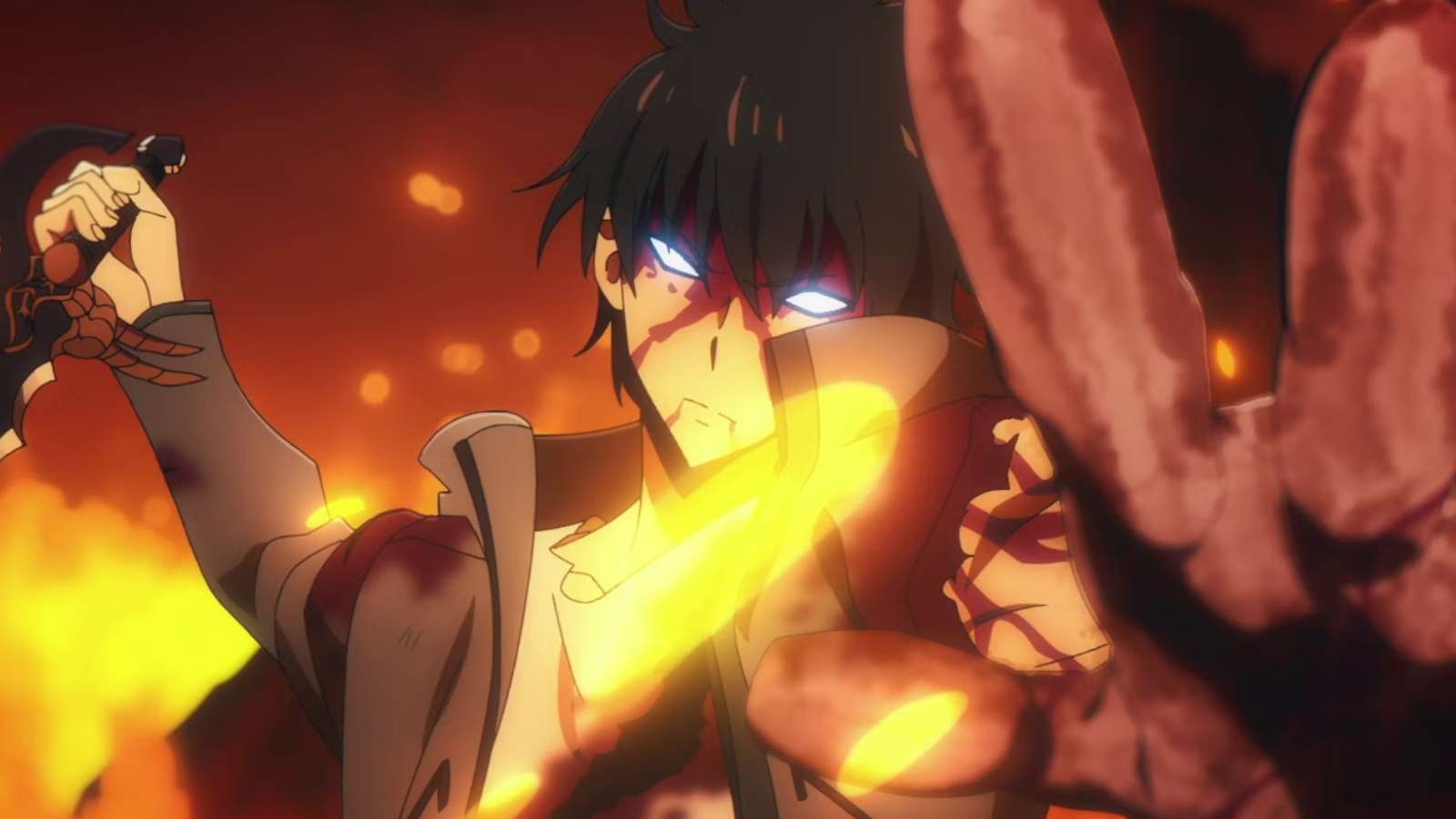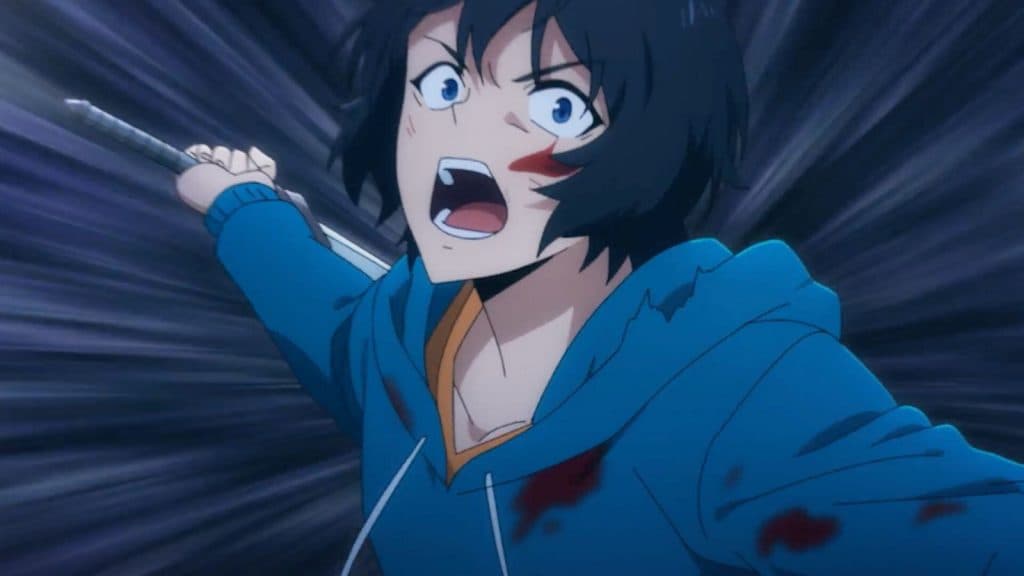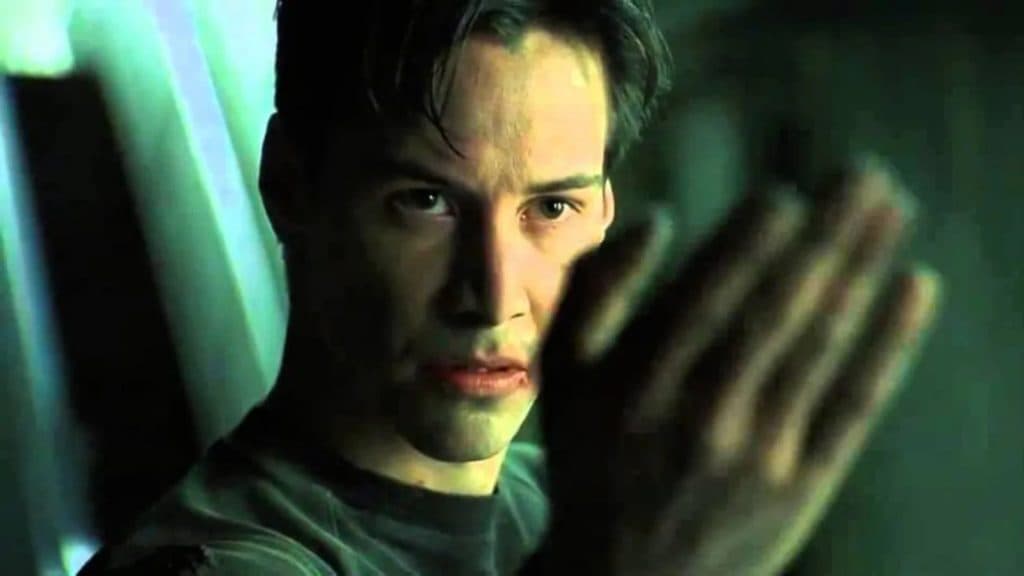Solo Leveling is the Matrix TV show I’ve always wanted
 Crunchyroll
CrunchyrollSolo Leveling’s blend of fantasy and sci-fi tropes holds clear influence from The Matrix, but Sung Jinwoo’s journey actually improves on Neo’s.
I rewatched the first three The Matrix movies recently, and let me tell you, they hold up. Yes, the sequels are a bit uneven, but the universe, ambition, and unrepentant creativity from Lilly and Lana Wachowski has aged like fine wine.
After devouring Neo’s journey, I went through The Animatrix, the animated compendium of short films demonstrating other corners of the war against the machines. I love The Matrix, and I’m always left disappointed that there isn’t more to see within the franchise.
Thankfully, this winter season gave me Solo Leveling, an anime show that has filled the Matrix-shaped hole in my brain. Sung Jinwoo’s AI-aided journey through an alternate universe mirrors Neo’s own adventure, but with the added inflection of him being a regular person who’s less destined for greatness and more the right person at the right time.
 Crunchyroll
CrunchyrollSung Jinwoo is the One
In the first episode, Sung Jinwoo sacrifices himself to save what remains of a group of heroes after they get trapped in a terrifying dungeon where enormous stone gods run through anyone who isn’t clever enough to understand their patterns. Sung was just smart enough to see through the gods’ attacks but at the expense of his own body.
Miraculously, he wakes up in hospital after being rescued, with no injuries and a bizarre interface only he can see. Some sort of system has chosen him, granting him the ability to level up his rank by completing different quests. Once he begins to understand his newfound strength, he starts tackling more dangerous and elaborate enemies.
You can see strands of The Matrix within Solo Leveling’s DNA — a predestined hero, the melding of our reality with some form of elaborate technology, and a foreboding sense there are multiple layers to what’s really going on. But then creator Chugong uses it all in a distinct fashion, by incorporating a fantastical twist.
 Warner Bros
Warner BrosThe Matrix, but make it DnD
Dungeons and Dragons is a pivotal touchstone, since the encroaching enemies mostly manifest as rudimentary monsters like goblins, serpents, and werewolves. They appear through inexplicable gates that have been opening, seemingly at random, for years, with certain people having powers that allow them to enter the portals, kill the boss, and collect loot.
It puts a fun twist on the man vs. machine paradigm, by giving the machine a creative streak in the enemies and obstacles it creates. Sung can purchase potions in a store and acquire keys from different bosses, all giving it the flair of a DnD session — just one that’s deeply meta and gone totally awry. (Is there any other kind?)
Solo Leveling has the air of an episode of The Animatrix, and you can imagine the first two episodes making a condensed short: a gaggle of adventurers get lost, find some horrendous glitch, one survives with a mysterious tether to the simulation’s code. Chugong’s manhwa massages and contorts the concept using fantasy elements to make a story that requires more space.
The symbiosis of DnD and The Matrix is remarkably fluid. Sung’s progression is clearly signposted, though we’re still limited to the knowledge he’s presented, and we have a clear sense of scaling for the enemies and stages he has to face.
Solo Leveling provides a version of The One without the narrative crutches of uploading skills to one’s mind on a whim. This is not to criticize The Matrix; I consider it as close to a perfect action movie as we have, and learning new skills coming in literal patches is an ingenious way to manufacture huge scenes, but I’m left wondering what it’s like for people who don’t have a Morpheus or Trinity.
A glitch in the simulation
There are those whose glitching arrives without context, pushing them to figure out what they can do by throwing themselves into impossible scenarios. What was it like for the first person in The Matrix to realize they could jump from high-rise to high-rise? I’m willing to bet it was a shock to any agents when their target was able to do kung fu after just running around a corner.
We get these moments in Solo Leveling. The foolhardy exploration and over-exertion, the feeling of fear and excitement. The sense of progression couched in lingering unanswered questions. Whatever’s going on, Sung has no shepherd. There’s not even a burning bush, just some menus logging his progression and telling him what’s next.
Sung’s choices have urgency because he’s getting stronger but still struggles when he brushes against his limits. His clash with Cerberus was so hard fought that he decided to walk away and grind before moving on to the next level. He might have seen the face of God, but his blessing doesn’t make him immune to his own humanity.
He can die, and given he’s on his own most of the time, he will if he isn’t careful. No matter how powerful he becomes, he still has those E-level instincts. That’s the trail I’ve long desired to see The Matrix follow. Where a human being sees all the code, but has to learn the appropriate passages to ascend.
The throughline of a Christ figure who has no apostles and no messiah, and whose scripture is popups for new quests and skill points. Whose story comes with goofy candor and undiminished self-belief. It’s definitely not as flashy as The Matrix, but I feel like I understand Sung more than Neo. Maybe he’s the One I’ve been waiting for.